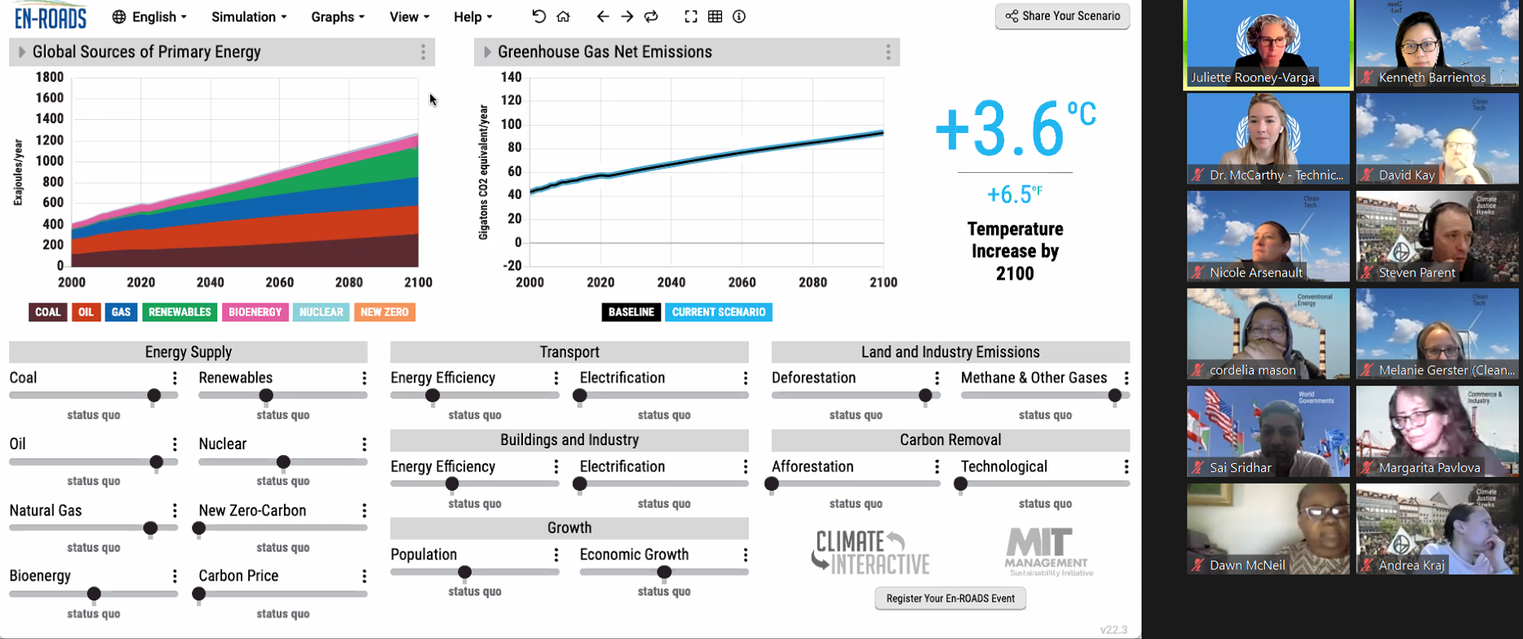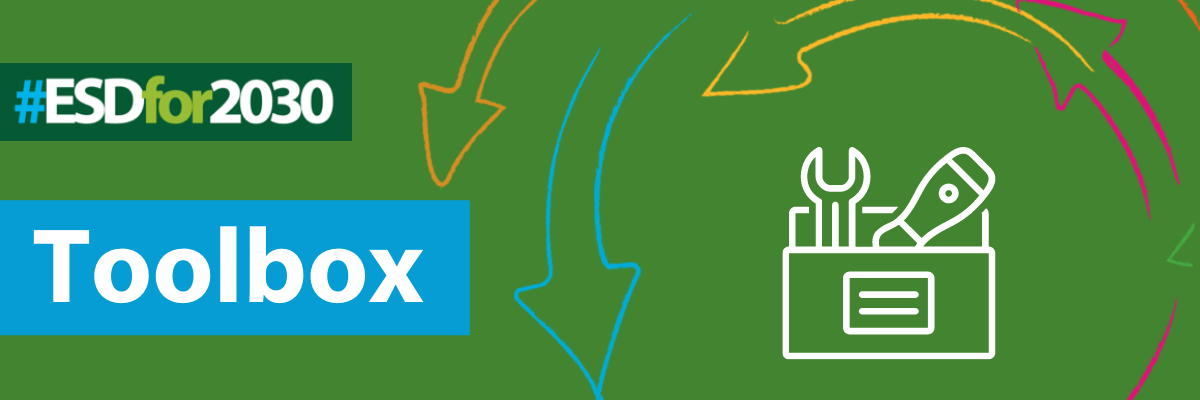
The UNESCO-UNEVOC International Centre: Who We Are | What We Do | Working With Us | Get in Touch
The UNEVOC Network: Learn About the Network | UNEVOC Network Directory
For Members: UNEVOC Centre Dashboard
Thematic Areas: Inclusion and Youth | Digital Transformation | Private Sector Engagement | SDGs and Greening TVET
Our Key Programmes & Projects: BILT: Bridging Innovation and Learning in TVET | Building TVET resilience | TVET Leadership Programme | WYSD: World Youth Skills Day
Past Activities: COVID-19 response | i-hubs project | TVET Global Forums | Virtual Conferences | YEM Knowledge Portal
Our Services & Resources: Publications | TVET Forum | TVET Country Profiles | TVETipedia Glossary | Innovative and Promising Practices | Toolkits for TVET Providers | Entrepreneurial Learning Guide
Events: Major TVET Events | UNEVOC Network News

On 6 April 2022, UNESCO-UNEVOC and Co-leads of the Sustainable Development Goals Affinity Group held a two-hour virtual workshop on the Energy Rapid Overview and Decision Support (En-ROADS) climate change solutions simulator. Over 50 participants from 15 countries joined the seminar, led by Juliette Rooney-Varga, Professor and Director at the University of Massachusetts Lowell and Carolyn McCarthy, Programme Associate.
En-ROADS is a free, easy-to-use computer simulation model that allows learners, educators or facilitators of learning to design climate action scenarios at a global scale and get immediate feedback about the expected results of decisions. The En-ROADS model has been used worldwide by policymakers, business and nonprofit leaders, and educators to design effective climate policies and educate tens of thousands of people.
The virtual workshop aimed to improve understanding of the causes and impacts of climate change, to identify and demonstrate relevant actions along with the opportunities and barriers to integrating sustainability into education and training, and to explore opportunities to mainstream climate change education in technical and vocational education and training (TVET).

The momentum for climate action is building. EN-ROADS provides a valuable interface to educate citizens and train a technical workforce that can develop a climate-resilient green economy for a prosperous, healthy and secure future. To find out more about the workshop and view videos on the EN-ROADS tool, access the background note here.
This webinar was the second in the series offered by the World Federation of Colleges and Polytechnics (WFCP) SDG Affinity Group in 2022. The webinars all promote knowledge sharing and advance awareness and adoption of the Sustainable Development Goals as integral to TVET processes and practices. Find out more about UNESCO-UNEVOC's work on Greening TVET here.
“Excellent tool to imagine the impact of decisions related to climate change actions. This approach makes it easy to communicate potential benefits to various stakeholders by directly engaging them. We can generate ideas and prioritize actions. It will help everyone to imagine the benefits clearly and get motivated to contribute in the best possible ways.”
– Sai Sridhar, Chamber of Indian Industry, India
“I teach fashion students, so this simulation raises the question how can our industry contribute to change.”
– Sabine Weber, Seneca College, Canada
“I’m committed to disseminating this information and making small changes that add to the preservation of the environment.”
– Jorge Alberto Parra Tobón, Universidad Tecnológica de Puebla, Mexico
“We have a course on Climate Change Adaptations at Universidad Veritas in Costa Rica. This tool will help us model processes as Costa Rica advances towards the carbon neutral goal. This is a wonderful tool!”
– Alejandra Barahona, Universidad Veritas, Costa Rica
“We need to build in circular economy into the simulation model because we are also facing a crisis point over natural mineral resources which are finite and not equally distributed.”
– Robert Bachmann, Universiti Kuala Lumpur, Malaysia

To complement the ESD for 2030 roadmap, UNESCO has developed the ESD for 2030 Toolbox![]() with an evolving set of selected resources to support Member States and regional and global stakeholders in implementing activities across the priority action areas.
with an evolving set of selected resources to support Member States and regional and global stakeholders in implementing activities across the priority action areas.